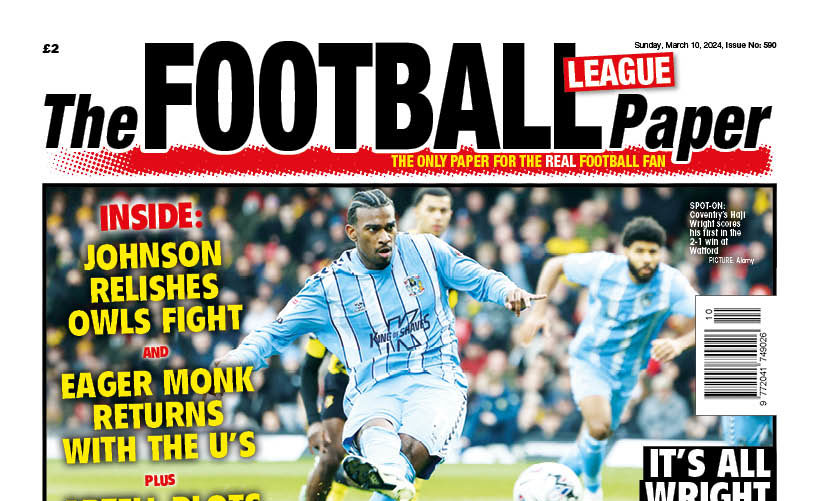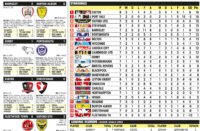Football in the United Kingdom has become synonymous with gambling in recent years, so much so that it could be said that football – particularly in the lower leagues – is now reliant on betting operators in order for the clubs to stay afloat. There has been much debate about the ingrained relationship between gambling and football recently, and how visible betting operators are on matchday in the UK, and it is clear some difficult conversations will have to be had regarding this relationship. With increased scrutiny on promotions like free bets and betting sign up offers, as well as betting operators' logos appearing on the front of shirts, stadiums and even the entire Football League, it is clear that change is coming, but what that change looks like is yet to be seen.
The Football League's links to gambling
When looking into this issue, the obvious starting point is the Football League itself being sponsored by Sky Bet. In 2017, the EFL agreed to a five-year deal with the betting operator, which by the time the deal ends will mark an 11 year partnership between the two and is the largest title sponsorship in EFL history. As part of this sponsorship, Sky Bet is EFL's title sponsor on a worldwide basis, the exclusive betting and gaming partner of EFL Digital, the official betting and gaming partner of The EFLs streaming service iFollow, and also has the right to live stream 16 midweek EFL Championship fixtures on a ‘watch and bet' basis. Sky Bet also has the right to live stream content from Club grounds such as squad details and live odds from inside EFL grounds on a matchday, is the title partner of the Sky Bet Play-Offs and displays branding in stadiums at all EFL matches. All this highlights the stranglehold betting companies have on the lower leagues, and Sky Bet as a brand will be extremely visible to young people who support clubs from the lower leagues.
On top of this, there are six clubs in the Championship with betting operators' logos as shirt sponsors: Birmingham, Bristol City, Coventry City, Derby County, Middlesbrough and Stoke City. One noticeable change coming to football in the coming years is that these shirt sponsors are set to be outlawed. In September 2021, the Daily Mail reported that the government is due to publish a white paper which would put this in motion, with the beginning of the 2023-24 season the targeted start date, which would give the clubs some time to seek out new sponsorship deals. The chairperson for the cross-party all parliamentary group for gambling-related harm (GRH APPG), Labour MP Carolyn Harris said: “Banning front-of-shirt ads is of course the right thing to do, but it just scratches the surface. We're bombarded by gambling adverts and that has to stop. Adverts should be completely banned to protect children and prevent harm.”
What would removing all ties between gambling and football mean for the EFL?
EFLs Chief Executive Trevor Birch has said he is concerned about the possibility of removing all gambling advertising from football in the UK due to the huge potential loss in revenue, particularly after the COVID-19 pandemic. The pandemic was of course extremely damaging to football clubs of all sizes in the UK, but in the lower leagues, many clubs feared it could put them out of business. Birch said removing all ties between gambling and football would have a “substantial impact” on the finances of Football League clubs, and called it “concerning”.
He said: “We're concerned because finance and sponsorship from the betting sector is an important part of the financing of the EFL. The figure we would put on it is £40m. If that particular avenue is closed off to us it will have a substantial impact on our finances.
“Life goes on and if it is a short-term hit we have to find an alternative. Who knows what else is out there in terms of sponsorship that might fill the gap? But it's also the case that the gambling industry does make an awful lot of money from football. So in some shape or form we think that they should be making some kind of contribution. It could be in a different form to shirt sponsorship.”
In interviews with BBC Radio 4's File on 4 programs, Tranmere Rovers chairman Mark Palios said: “We can't change the bigger picture in terms of the football industry being involved to the extent it is but from a personal perspective that's what we do. Football has to wean itself off the position it is in at the moment – and that's the best verb I can use. It's certainly gone too far… I see gambling as something that is pernicious. People get hooked into it and it is a hidden addiction.”
James Grimes, head of education at Gambling With Lives and founder of The Big Step, a charity walk to promote their cause told The Athletic: “I have probably spoken to 30 or 40 clubs in the EFL and Premier League and I've not met anyone who is proud of having gambling sponsorship and advertising in football. Nobody wants a gambling company on the front of their shirt.”
He continued: “A House of Lords report found that if gambling revenue was removed and replaced, it would be the equivalent of a 2.5 per cent cut in total revenue for football. I don't ever accept the argument that football will collapse because that's not a significant amount.”
It is clear that the relationship between football and gambling has become an issue, particularly when it comes to clubs in the lower leagues. The links between the two are so strong and so entrenched however that it cannot be an overnight fix, as Palios rightly put it, these clubs and the EFL have to ‘wean' themselves off it, as the revenue these partnerships are generating are keeping some of these clubs alive in some cases. While removing these ties completely is something that should be done eventually, there also has to be something that can replace that revenue that is less damaging.

















